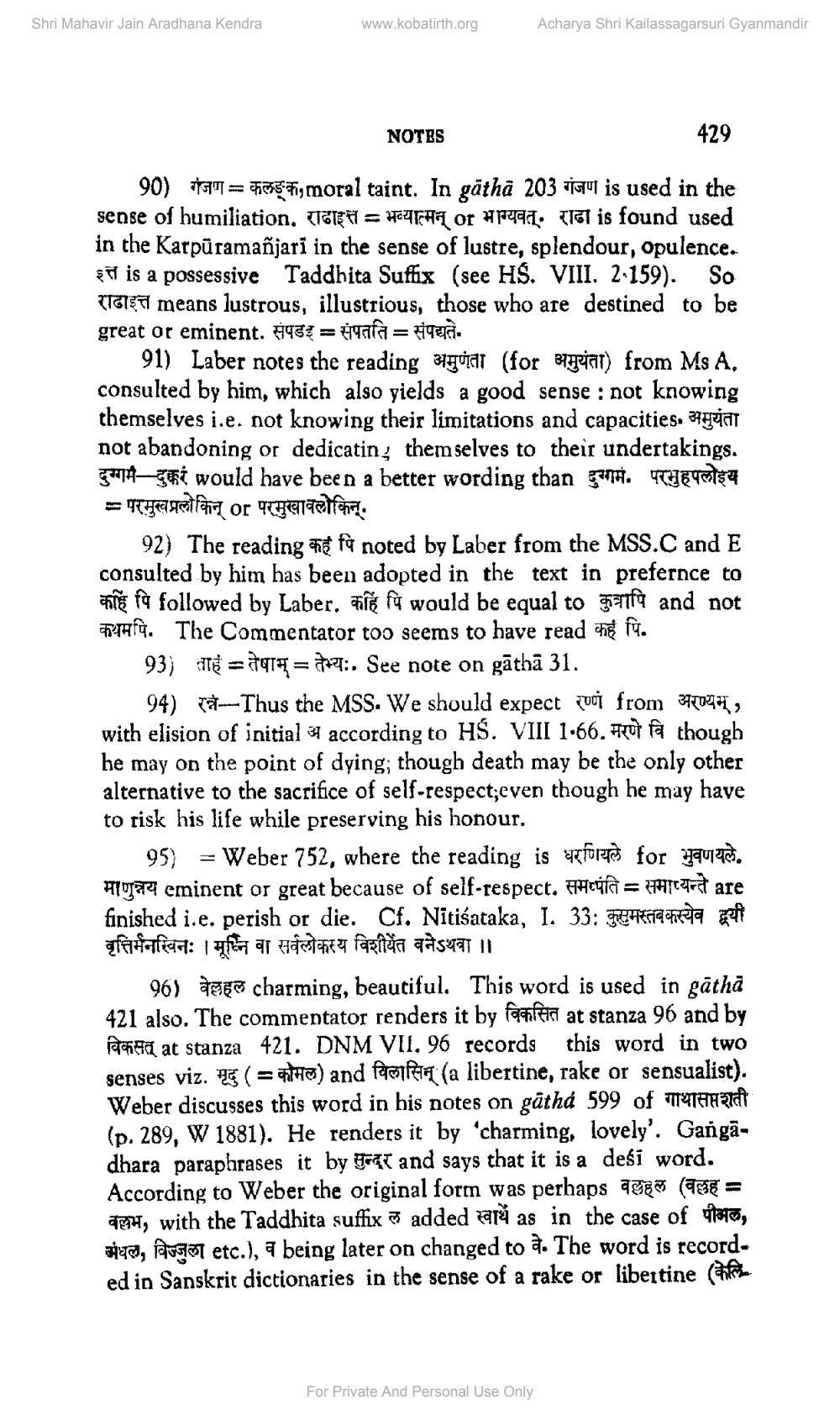________________
Shri Mahavir Jain Aradhana Kendra
www.kobatirth.org
Acharya Shri Kailassagarsuri Gyanmandir
NOTES
429
90) THU = 155 Fi moral taint. In gäthä 203 sigut is used in the sense of humiliation. रादाइत्त = भव्यात्मन् or भाग्यवत्. रादा is found used in the Karpūramañjarī in the sense of lustre, splendour, opulence. şi is a possessive Taddhita Suffix (see HS. VIII. 2.159). So TTGIETI means lustrous, illustrious, those who are destined to be great or eminent. $954 = Avata = 95.
91) Laber notes the reading Baguer (for Berat) from Ms A. consulted by him, which also yields a good sense : not knowing themselves i.e. not knowing their limitations and capacities. Bhajat not abandoning or dedicatin, themselves to their undertakings. 1974-561 would have been a better wording than Á. "CUE4154 = परमुखप्रलोकिन् or परमुखावलोकिन्.
92) The reading the fa noted by Laber from the MSS.C and E consulted by him has been adopted in the text in prefernce to कहिं पि followed by Laber. कहिं पि would be equal to कुत्रापि and not कथमपि. The Commentator too seems to have read कह पि.
93) de = 2977 = :. See note on gāthā 31.
94) Thus the MSS. We should expect quoi from 340477, with elision of initial 3 according to HS. VIII 1.66. Arut though he may on the point of dying; though death may be the only other alternative to the sacrifice of self-respect;even though he may have to risk his life while preserving his honour.
95) = Weber 752, where the reading is utformat for yquinha माणुन्नय eminent or great because of self-respect. समपंति = समाप्यन्ते are finished i.e. perish or die. Cf. Nitiśataka, I. 33: Fehmita att वृत्तिमनस्विनः । मूनि वा सर्वलोकस्य विशीर्यंत वनेऽथवा ॥
96) The charming, beautiful. This word is used in gātha 421 also. The commentator renders it by fanten at stanza 96 and by Faha at stanza 421. DNM VII. 96 records this word in two senses viz. मृदु (= कोमल) and विलासिन् (a libertine, rake or sensualist). Weber discusses this word in his notes on gâthá 599 of "TATAHIN (p. 289, W 1881). He renders it by 'charming, lovely'. Gangadhara paraphrases it by Trat and says that it is a desi word. According to Weber the original form was perhaps वलहल (वल्लह = वल्लभ, with the Taddhita sufix ल added स्वार्थे as in the case of पीमल,
e), Augiat etc.), a being later on changed to a. The word is record. ed in Sanskrit dictionaries in the sense of a rake or libertine (alife
For Private And Personal Use Only




